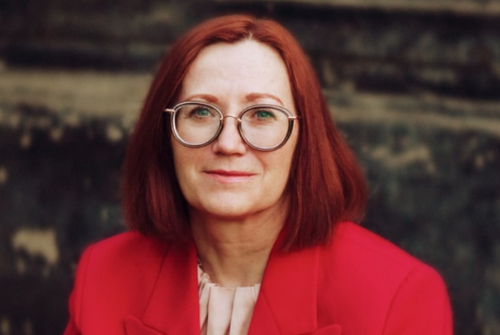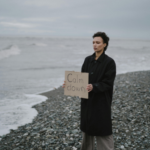
The Truth About Starting Over After Divorce at 45
Starting over after divorce at 45 is something I never planned for. Like many women, I dreamt of being married to a loving partner and raising our children, and then playing with our grandchildren. When I thought about divorce in my 30’s, I still didn’t want to be divorced. The plan then was to remarry immediately and create an even more successful family. A newer, kinder, and richer man would share my burdens, handle the nasty divorce-related negotiations and shield me from shame and guilt. He would be a great stepdad and a father to more of my kids. That was my idea of a successful life for a woman starting over after divorce at 45.
The reality was different. I initiated my divorce without the prospect of a better husband at 43 and finalized it at 44 almost 2 years ago.
I think that my age gave me courage and motivation. In a way, I realized that “the rest of my life” was getting shorter with every year and this motivated me towards change. If I didn’t change my life, it would stay the same, if not worse. I realized that my Ex’s abusive tactics would never stop. And I was right. To illustrate, my Ex is already remarried and is verbally abusive to his new wife. I felt unsafe growing old with an abuser. My children turned into teenagers. I reckoned they needed a sane and hopefully happy mother to support them in their critical years.
Divorce as Part of a Midlife Crisis
For me, like for many other women, divorce came as part of a midlife crisis. It’s the time when we are forced to reassess our bodies, careers, relationships, let kids grow up. We let go of old patterns and look for new meanings. Divorce helps us transform in its brutal way. In my case, I got divorced, lost my job, lost my home, went into COVID lockdown, and saw my eldest son choose to stay with his father — all in a space of 6 months.
From a home-owner, a wife and a mother of two, a career-minded professional, I turned into a jobless divorced half-empty nester living with my parents.
There are lots of things to face in your life after divorce. At 45, I am looking for a job and even considering a new career. I haven’t rebuilt my finances and haven’t yet moved into my new apartment. I’ve had to reassess my relationship with my Ex. I am still working on healing my relationship with my children, looking to rebuild my connections with my friends, and when it comes to my parents, I am looking at them in a new light.
Maybe most importantly: I am looking at myself. Who am I after all? What do I like doing, eating, watching? Whom do I like being with?
These questions and practical issues invariably bring up feelings within me, and so I think it’s important to discuss what it’s like emotionally, now that I am starting over after divorce at 45.
If you’re recreating after divorce and looking for insights and traction, check out our “How to Overcome the 6 Hardest Things About Life After Divorce
Divorce and Grief
The honest truth is that divorce at any age makes us feel grief and disappointment. Divorce takes everything we envisioned —like hearth and home, love and children, and long-term goals of golden years —and throws that dream out the window. As if that wasn’t enough, many of us have deeper-seeded emotions that come to the surface once we’re looking out that window, assessing the damage. It’s better to recognize these feelings and handle them with care. They are different for every woman and very much depend on core beliefs, culture, or religion. I live in Moscow, and certainly here in Russia, women who have been married for a long time especially with children likely did it out of fundamental faith in the institution of marriage. Some see God’s intention for us to live married. Others consider marriage as the only safe and respectable way to raise children.
I found myself deeply grieving and needing a longer, kinder adjustment time to my new reality. The transformation from a wife in a nuclear family to a single mom with just one of the kids choosing to live with me caused deep guilt, shame, and an escapable feeling of being a failure.
Motherhood In Midlife Divorce
Despite my journey, I am now finding that starting over after divorce at 45 as a mother is not as bad as I thought. I may not be a mom who provides her children with a classic family experience —but who does anymore? I may have put some of my interests ahead of theirs when I divorced. However, I am still concentrating on other motherly jobs like taking care of their education, their health, coordinating logistics, teaching them values and healthy habits, and demonstrating responsibility. I am doing my best to respect my sons’ choices and their need for a relationship with their father. I am learning how to continue their education with less money than we planned.
It seems like my motherhood style is working. My elder son recently gave me an unexpected hug and a kiss and said: “Thank you for being the way you are. You are such a great mom.” It brought tears to my eyes.
Whereas I planned for coparenting with a lot of coordinated decisions, I admit that I am happy with the parallel parenting with almost no contact and no arguing. Now, if I want my son to go to yoga, I just talk to my son. Previously I had to get approval from my Ex and argue for yoga versus boxing or football. Now, it’s the business of the kids to discuss with their father whatever they need to discuss. My current model saves me time and energy.
Responsibility: The one who decides and drinks all the wine
In my experience of starting over after divorce at 45, I want to single out a newfound responsibility. I am still getting used to being the sole decision-maker in many things. Now it’s me who has responsibility for the bills, the gadgets, the car maintenance, vacation destination, vaccine choices. Not only do I need to decide what to watch on TV but I also have to work out how to turn the damn thing on!
All this new responsibility and decision-making is stressful. The longer the marriage, the more stressful the new tasks. Many of us need to learn updated technology and computer skills, for example, if we hope to go out into the workforce. This means allocating resources and time for the new learning. The result, however, can be empowering!
I continue to make discoveries about my old way of life and my new one. For example, I am learning that while my Ex-husband pretended to share responsibility when we were married, he was in fact controlling my activities and my hobbies, and my beauty-related spending. He also pushed me to get jobs I didn’t want just so we would have more money. Realizing that I was controlled for a long time was sad but now I feel even more liberated.
Facing responsibility is empowering. I’ve learned about my own usage of resources and consumption. And, being the only adult in my family, I can no longer blame a husband for the empty wine bottle or the undone bed.
Financially Speaking
Divorce is a tough time financially. Moreover, high legal fees and multiple therapy sessions are only part of the problem. The bigger part of the problem is that divorce takes away the confidence and energy necessary for work. I still have days when all I can manage physically is to walk the dog and thank God for food delivery services. A recently divorced friend in a high-power job confessed that she is only staying employed because of her ability to delegate to subordinates.
Rebuilding finances can take even longer if you decide to change your career as part of the midlife crisis. Many women who were stay-at-home Moms are starting from scratch.
It can take a few years to rebuild your life financially and professionally after a divorce, and it takes longer to rebuild ourselves emotionally and personally. We need to recognize that, manage our ambitions, and maybe watch fewer films where women are left better off after a successful divorce from a millionaire!
On the positive side, I don’t feel financially insecure like I did in my marriage. I may not have a stable income now but I use it the way I see fit. And no one is forcing me into a job that I don’t like.
Recovering Socially and Romantically
I haven’t dated yet after my divorce. That’s 2 years. I never imagined it would be possible to not date for such a long time, but it is easy. There wasn’t much socializing due to COVID, no vacations where a holiday romance could have happened. At the moment I am horrified by Tinder and other dating apps. I might consider apps later, but at the moment I am embracing singlehood. Right now, I like the idea of self-partnering, taking myself out for lunch or a walk. I have made myself available for girly events and organized some myself like a trip to a gallery or museum or a live music event. And I am loving it.
While I am enjoying my new single status, some friends seem to have a problem with it. When I tell friends about embracing my singlehood, three different women replied with the same message: “Don’t despair, you may still meet a nice man.” I think culturally in Russia we still think that it’s safer and more respectable to be with a man than on your own.
A “single person” has a negative connotation in the Russian language and translates as “lonely” or “solitary”, one to be pitied. Another possibility is that my friends are just jealous that I have my freedom and the whole bed to myself!
Other Cultural Details About Midlife Divorce in Russia
The divorce experience and life after divorce can differ anywhere and within any country due to the difference between people, values, class specifics, or religious ideas. Getting divorced in Russia meant that I had to go beyond the information provided in Russia, and rely instead on English-language resources about divorce, abuse, narcissistic abuse, coparenting, and how to rebuild myself. Many such concepts and terms just don’t exist in my language. I am so grateful to have the skill of speaking different languages because it means I am not locked into one world.
Yet, while psychological or emotional advice in English was useful, I had to be careful with legal or financial information because of the differences with Russian law. I am sad to say that the Russian legal system does not protect women enough either through a welfare system or by recognizing the impact of abuse. As a single mother out of a job for ten months, I got next to nothing from the state in financial support. I have learned that in many countries, it can be similar; a woman needs to have sufficient savings and support of a family to live onward after divorce.
I have also noticed that men in Russia in my social circles remarry quickly or enter into a new long-term relationship almost immediately after their divorces. Conversely, women take time to rediscover who they really are and what it is they want. That discovery is precious and long overdue.
So, as I ask myself again: “What is starting over after divorce at 45 really like?” I must say, it’s not bad. Not bad at all. I am definitely happy I’ve done it. And as I look back at how much I have been through, I feel proud of myself. “Good for me, brave girl!”
Notes
Anna Ivanova-Galitsina is an international expert in communications and storytelling based in Moscow, Russia. She has two teenage sons and a dog, and she is building a new happier life. You can reach out to her via e-mail for comments or discussion.
Whether you are navigating the experience of divorce, or that confusing place of recreating the life you deserve, one thing we see making a significant difference for women is the conscious choice to not do it alone. Since 2012, smart women around the world have chosen SAS for Women to partner them through the emotional, financial, and oft times complicated experience of divorce and reinvention. SAS offers women six FREE months of email coaching, action plans, checklists, and support strategies for you, and your future. Join our tribe and stay connected.






